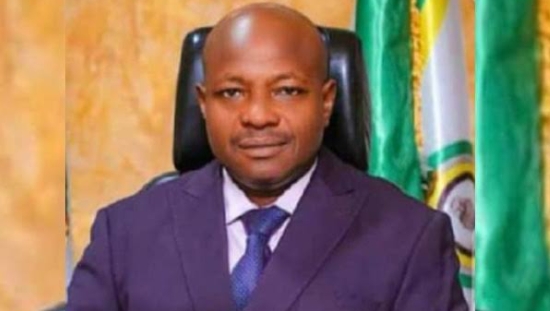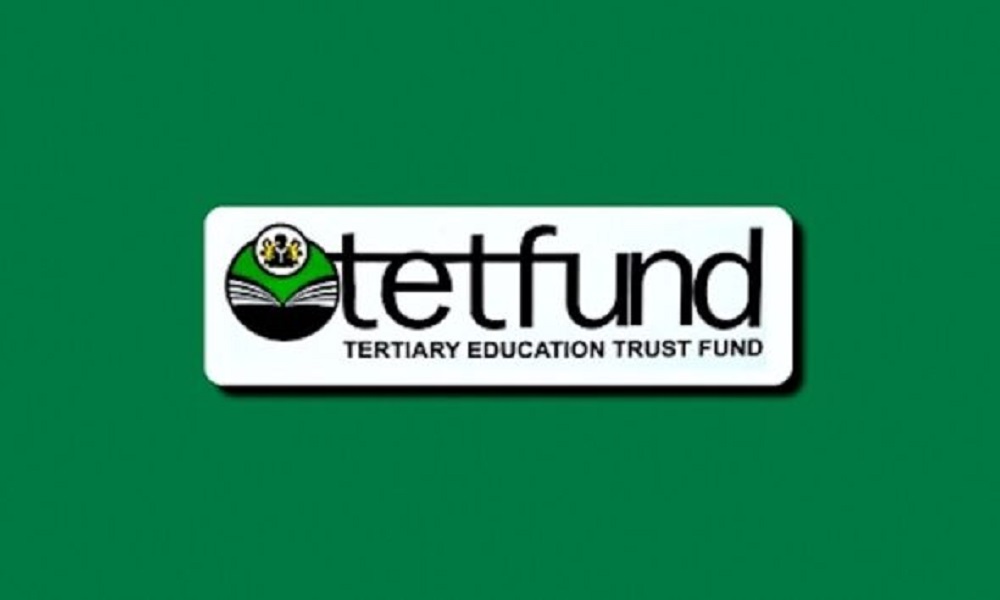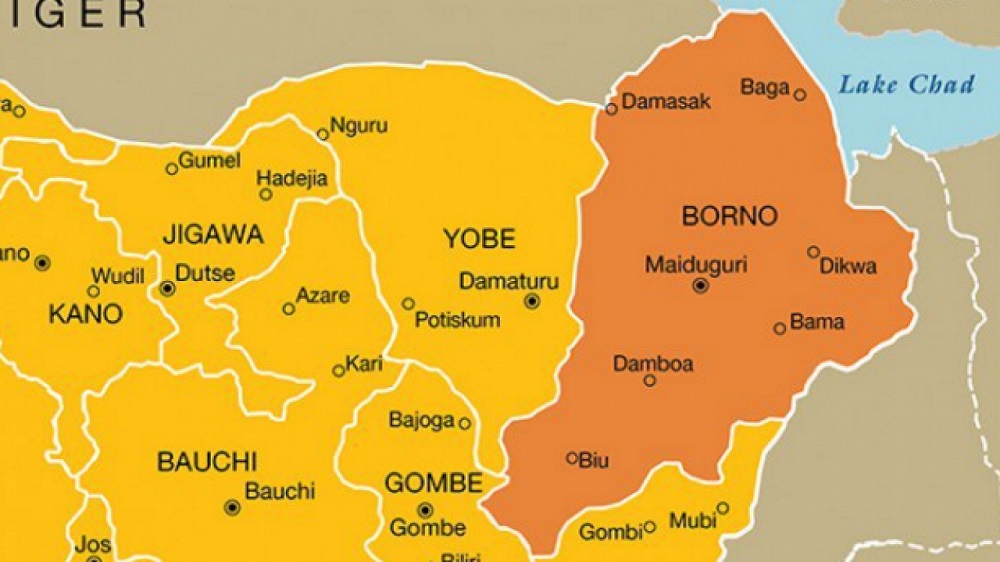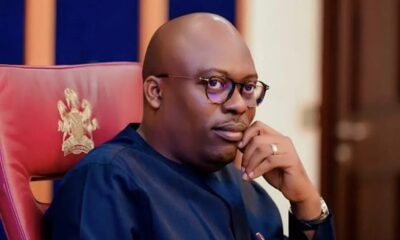News
DSS DG wants compulsory recruitment of 1st class graduates into secret service

By Kayode Sanni-Arewa
Tunde Oyekola and Stephen Angbulu
The Director-General of the Department of State Services, Mr. Oluwatosin Ajayi, has called for a policy mandating the recruitment of first-class graduates into the intelligence agency to strengthen national security.
Ajayi made this call while delivering the 2025 Distinguished Personality Lecture at the Centre for Peace and Strategic Studies, University of Ilorin, Kwara State.
In his lecture, titled “The Roles of the DSS in Security, Peacekeeping, and National Integration,” Ajayi emphasised the need for a paradigm shift in recruitment and staffing within security agencies to ensure only the best minds are enlisted.
Represented by the DSS Deputy Director, Mr. Patrick Ikenweiwe, the DG argued that recruiting top academic performers into the DSS should be a compulsory national policy, similar to Israel’s selective university admission system.
The DSS DG stressed the need for a shift in public perception, noting that many Nigerians view security agencies as adversaries rather than allies.
He warned that such attitudes negatively impact intelligence gathering, peacebuilding, and national integration.
“Like I know, in Israel, there is one examination that students take to get admitted into the university. The moment you score above 70 marks, you have no option but to be sent to the university there.”
He contended that intelligence work requires exceptional intellect to tackle sophisticated criminal networks.
“Tell me how would a ‘Dundee’ (dullard) be able to keep security in a criminal gang that is constituted of First Class people? You know, it takes intellect to track criminality.”
“So, if I have my way in this country, and we keep praying that we do the right thing, the academia should be able to supply us, sincerely, the details of students who have excelled in their various fields of study so that they would be forced to serve this great nation,” he said.
The lecture further highlighted the critical role of intelligence agencies in safeguarding national security, emphasising that public perception of security organisations as adversaries rather than allies hampers intelligence gathering and peacebuilding.
Addressing Nigeria’s security landscape, Ikenweiwe noted that traditional threats such as sabotage, subversion, and espionage have evolved into more complex challenges, including terrorism, insurgency, separatist agitations, militancy, cybercrime, and economic sabotage.
He reaffirmed the DSS’s commitment to tackling these threats through strategic collaborations with sister agencies and continuous stakeholder engagement.
Speaking on an overview of the mandate of the DSS, he said the service’s internal security responsibilities are accommodated in the NSA Act CAP N74 LFN, 2024 and SSS Instrument No. 1 of 1999.
The former summarily mandates the Service to prevent and detect any crime against the internal security of Nigeria as well as protect non-military classified national security matters, while the latter, promulgated by Abdulsalami Abubakar, mandates the service to, among others, prevent, detect and investigate the threat of espionage, subversion, sabotage, terrorism, separatist agitation, law and order and economic crimes of national security dimension.
“The instrument also demands that the DSS gives timely advice to the government on all matters of national security interest. Most importantly, the Service is empowered by the aforementioned legal frameworks to execute other functions as may from time to time be assigned by Mr. President, the Commander-in-Chief of the Armed Forces.
“The centre also offers short-time capacity-building training in those areas. Quite a number of officers from the Nigeria Armed Forces, other security agencies as well as officers of other nations have benefitted from the programmes, graduated and are doing well in their callings,” he said.
Meanwhile, in a related development, First Lady Oluremi Tinubu on Wednesday received a delegation from the DSS, led by the Deputy Director-General, Mrs. Afolashade Adekayaoja, at the State House, Abuja.
The visit underscored the administration’s commitment to empowering women in leadership roles within the security sector.
Tinubu applauded the DSS for appointing a woman to such a high-ranking position, stating, “Women who have proven themselves in their careers deserve recognition and leadership roles. This is a testament to my husband’s long-standing belief that women are highly responsible and committed.”
She urged female leaders in the DSS to support one another and diligently execute their duties to inspire future generations.
In response, Adekayaoja expressed gratitude for the administration’s commitment to gender inclusivity and reaffirmed the DSS’s dedication to ensuring national security and stability.
With the push for compulsory recruitment of Nigeria’s brightest minds into intelligence services, the DSS aims to bolster its operational effectiveness in addressing evolving security threats and strengthening national peace and integration.
THE PUNCH
News
TETFUND threatens to cut financial support to non-performing institutions

The Tertiary Education Trust Fund (TETFUND) has threatened to cut financial support to beneficiary tertiary institutions that fail to meet performance benchmarks or mismanage allocated funds.
The agency said it would de-list such tertiary institutions from its support programmes.
Executive Secretary of TETFUND, Sonny Echono gave the warning at a one-day strategic engagement with heads of institutions, bursars, and heads of procurement of the agency’s beneficiary institutions in Abuja on Monday.
Echono said the policy was not meant to punish, but rather safeguard the credibility and impact of TETFUND interventions.
He said: “Let me be clear, institutions that consistently fail to access, utilise or retire funds appropriately, or that fall short of enrollment and academic performance thresholds, risk being delisted as TETFUND beneficiary institutions.”
He also disclosed the intention of TETFUND to ensure that its resources were directed towards institutions that were committed to high standards of governance, transparency, and accountability.
Echono said the strategic engagement was targeted at addressing recurring challenges in Nigeria’s tertiary education sector, improving project execution, and enhancing the quality of education.
A key focus, he said, was the Academic Staff Training and Development (AST&D) intervention.
He said due to rising costs and incidents of scholars absconding, the foreign component of the TETFUND Scholarship for Academic Staff (TSAS) was suspended as of January 1, 2025 with emphasis now shifted to cost-effective, locally driven training.
Echono said this year’s intervention budget prioritises consolidation, sustainability, and the completion of abandoned projects.
He added: “This engagement is not merely a meeting but a strategic convergence. It is designed to address recurring issues of concern, streamline project implementation, and enhance the overall quality of tertiary education delivery in our nation.
“As we move forward, let us approach today’s discussions with openness, collaboration, and a shared vision to elevate our institutions and the students we serve.
“Together, we can strengthen accountability, drive innovation, and ensure that the legacy of TETFUND remains impactful, equitable and enduring for generations to come.”
Executive Secretary of the National Universities Commission (NUC), Professor Abdullahi Ribadu emphasised the importance of the meeting for evaluating the implementation and impact of TETFUND – supported projects in higher education institutions.
The NUC chief, who was represented by Dr. Joshua Atah appreciated TETFUND’s vital role in improving infrastructure, research, staff development, and academic quality, stating that without its support, public education would struggle to survive.
Prof. Ribadu acknowledged the adaptability of TETFUND’s policies, such as suspending international scholarships to reallocate resources more effectively.
He urged tertiary institutions to be more responsive and ensure that interventions were relevant and efficiently executed.
Ribadu encouraged judicious and timely use of funds and called for open and constructive dialogue during the engagement.
“This calls for greater responsiveness also on the part of the institutions. This responsiveness also includes the areas of the design and implementation of these interventions to ensure that they remain relevant, impactful, and aligned with the future of education in Nigeria.
“It’s also important that we judiciously utilise these resources, and not just judicious utilisation but also in a timely manner so that we don’t lose the fund,” he said.
News
Again, Boko Haram reportedly attack military base in Borno

Suspected Boko Haram terrorists have attacked a Nigerian Army base in Marte , the headquarters of Marte Local Government Area of Borno State with casualties
The terrorists attacked the 153 Task Force Battalion’s Forward Operation Base (FOab) at around 3am on Monday, according to the locals and security sources.
They said the terrorists also burnt armoured tanks and seized arms and ammunition from the base during the attack.
“ISWAP has taken over Marte. An unspecified number of soldiers were killed, some captured, and many others fled towards Dikwa.
“They are currently at the 24 Task Force Brigade in Dikwa,” a source said.
Recent terrorist attacks have targeted several military formations in Borno and Yobe, including Sabon Gari and Buni Yadi, with the latest being the attack on the 153 Task Force Battalion.
Attempts to reach Maj-Gen Markus Kangye, Director of Defence Media Operations, were unsuccessful as he didn’t answer calls or respond to text messages.
News
Taraba Woos Global Investors Ahead of Landmark Economic Summit

…Taravest 2025 to Unlock Opportunities in agric, energy, mining
…as state offers peace, resources, incentives
By Gloria Ikibah
The Federal Government and Government of Taraba State have called on the international community and private sector players to partner with Taraba in unlocking the state’s massive investment potentials across agriculture, energy, mining, and tourism.
This call comes ahead of the Taraba International Investment Summit (Taravest), with the theme: “Unlocking Taraba’s Investment Potentials, Advancing Agriculture, Energy, Mining and Industrialization for sustainable development “, scheduled for May 21, 2025, in Jalingo, Taraba state.
Speaking at the diplomatic preparatory briefing in Abuja, the Minister of Foreign Affairs, Ambassador Yusuf Maitama Tuggar, who was represented by Ambassador Anderson Madubike commended the initiative, describing it as a platform that aligns with Nigeria’s economic diplomacy agenda.

“I wish to commend His Excellency and indeed the Government of Taraba State for convening this timely summit, particularly at this time when the whole world is in need of creating a travelling investment climate through co-location. There is therefore the need for partnership between governments, private sector players, and civil societies,” the Minister stated.
He emphasised that Taravest represents “a collective pursuit of development and prosperity, not only for Taraba State, but indeed for the whole world.
“They have enormous resources—we’re talking about gold, we’re talking about uranium, and many others, and of course agriculture, fertile land, which you know, food, is the way to go”, he added.
Ambassador Madubike noted that the theme for the summit, themed “Unlocking Taraba’s Investment Potentials: Advancing Agriculture, Energy, Mining, and Industrialization for Sustainable Growth,” is expected to attract both local and international stakeholders.
“Our presence here signifies a commitment to making Taraba a model of investment and sustainable development,” he said.
In his address, the Executive Governor of Taraba State, Dr. Agbu Kefas, expressed gratitude to the Federal Ministry of Foreign Affairs and extended an open invitation to diplomats and investors.
Dr. Agbu highlighted the significance of the summit as the first of its kind since the state was created in 1991, and laid out three clear objectives.
“It is my great honor to welcome you to the Paivota Preparatory Meeting for the Taraba State International Investment Summit, Taravest 2025, in just nine days to come.
“To orient you to Taraba’s untapped potentials and the structure of the summit; to inspire your confidence in our security, infrastructure, and business environment; and to enlist your support in rallying investors, technical partners, and development agencies”, the governor said.
He emphasised Taraba’s strategic strengths, citing five core advantages, this is as he reassured guests about the state’s security readiness.

“Peace and security, over 44,000 km² of fertile land for agriculture, massive hydropower and solar capacity, rich mineral reserves including gold, barite, and lithium, and growing opportunities in tourism and the digital economy.
“I want to assure you that we have coordinated with the state security services, the Nigerian military, the Nigerian police, and our traditional rulers… to guarantee your safety”, he added.
The summit, he explained, will feature B2B and B2G matchmaking, policy dialogues, PPP frameworks, and guided site visits to model farms and mining zones.
“Taravest 2025 is more than a conference. It is a statement of fact that Taraba is open for transformative partnership. I invite you to leverage your good offices to mobilize your government and business communities,so that together we will convert promise into progress and unlock a future of shared prosperity”, Dr. Agbu added.
He also urged embassies to submit the names of participating investors and delegates by May 16, 2025, to ease logistics.
Taravest 2025, which will hold at the Banquet Hall of the Government House in Jalingo, aims to attract capital, expertise, and innovation to transform Taraba into a thriving investment destination and economic powerhouse.
-

 News18 hours ago
News18 hours agoJust in: Wike admits Fubara alongside 2 govs visited him on reconciliatory moves
-

 News22 hours ago
News22 hours agoRivers crisis: Wike’s aide mocks Fubara, advises him to honourably quit since his spirit has left Brick House
-

 News15 hours ago
News15 hours agoGo home to face corruption probe, protesters in London tell Kyari (Photos)
-

 News21 hours ago
News21 hours agoJapa! UK to End Overseas Care Worker Recruitment to Cut Migration
-

 Economy20 hours ago
Economy20 hours agoSEE Black Market Dollar (USD) To Naira (NGN) Exchange Rate Today 12th May 2025
-

 News22 hours ago
News22 hours agoJust in: Chris Piwuna emerges as new ASUU President
-

 News18 hours ago
News18 hours agoAMCON, Others Dragged to Court Over Alleged Undervalued Sale of Ibadan Disco for $62m
-

 News21 hours ago
News21 hours agoUS and China Reach Trade Accord Deal After Geneva Talks


















